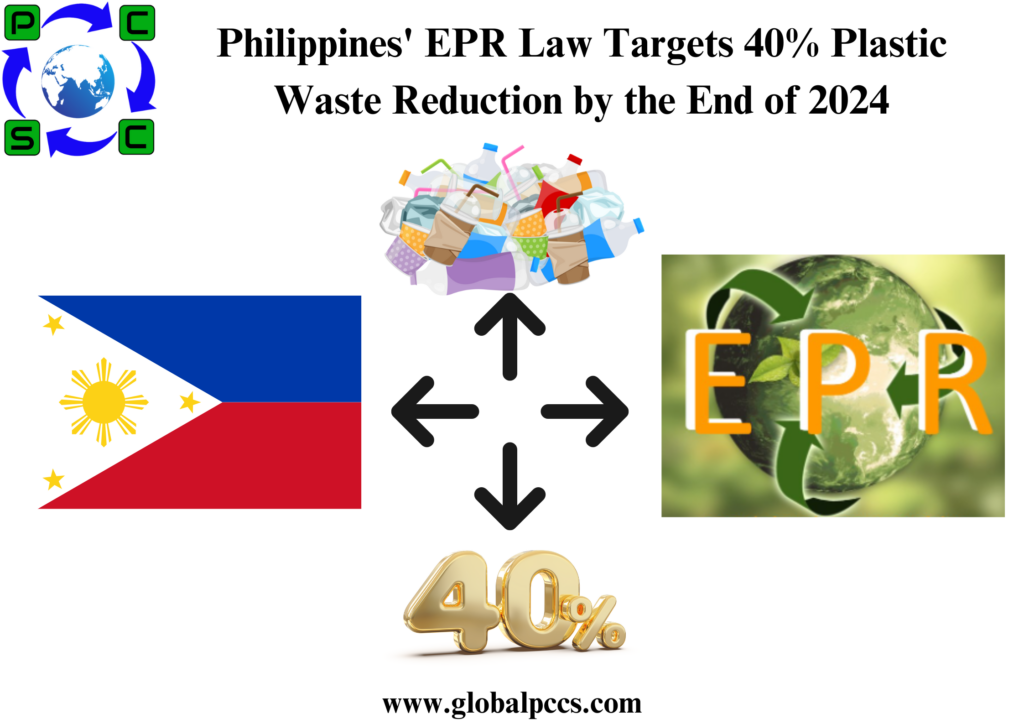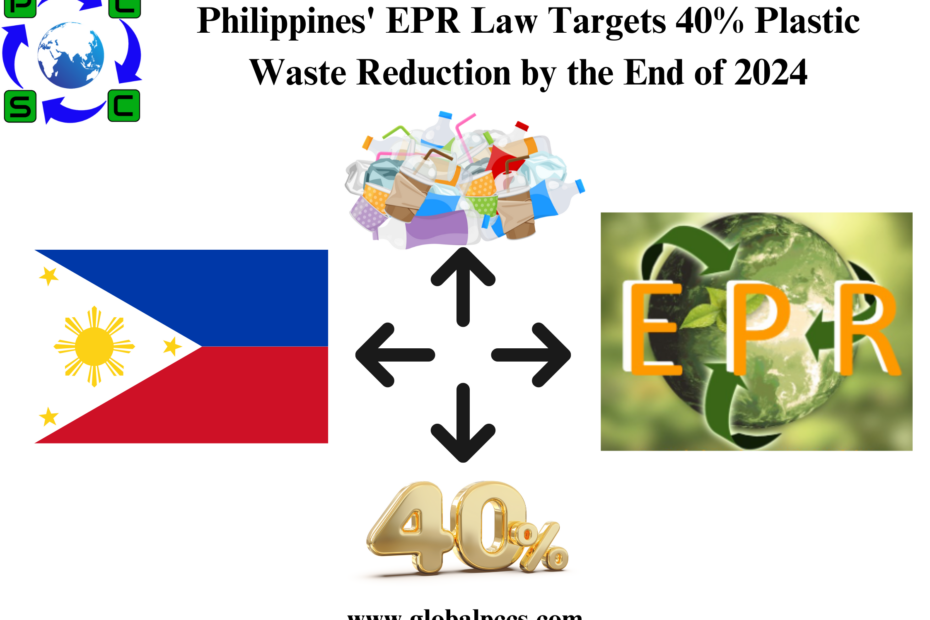 The Philippine Environmental Management Bureau (EMB) released a notification on August 6, 2024, highlighting how crucial it is for businesses to register their Extended Producer Responsibility (EPR) initiatives. The nation’s ambitious aim of reducing plastic trash by 40% by the end of 2024 depends heavily on this project. The EPR Act, which marked its second anniversary on August 12, 2024, is in line with the EPR programs, which concentrate on waste reduction, recovery, and diversion.
The Philippine Environmental Management Bureau (EMB) released a notification on August 6, 2024, highlighting how crucial it is for businesses to register their Extended Producer Responsibility (EPR) initiatives. The nation’s ambitious aim of reducing plastic trash by 40% by the end of 2024 depends heavily on this project. The EPR Act, which marked its second anniversary on August 12, 2024, is in line with the EPR programs, which concentrate on waste reduction, recovery, and diversion.
- EPR Act’s role in circular economy
The EPR Act is a significant legislative step towards establishing a circular economy in the Philippines. It aims to address the rapid growth of the plastic industry and the challenges of managing plastic waste effectively.
The EPR Act mandates the establishment and the gradual implementation of EPR programs specifically targeting plastic packaging. These programs are designed to manage plastic waste efficiently, reduce the production and importation of low-reusability plastic packaging, and promote plastic neutrality through effective recovery and diversion schemes.
- Obliged Enterprises (OEs) and environmental responsibility
The notification underscores the crucial role of Obliged Enterprises (OEs), which include brand owners, product manufacturers, and importers. These entities are responsible for ensuring environmental responsibility throughout a product’s lifecycle, particularly its post-consumer or end-of-life stage.
- Increase in EPR program registration number
Since the Department of Environment and Natural Resources (DENR) launched the EPR campaign, there has been a notable increase in registered EPR programs. The number of registrations has grown from 667 initially to 917 as of May 6, 2024, reflecting the heightened awareness and commitment to environmental stewardship. Among these, 129 programs come from large enterprises and 298 from micro, small, and medium-sized enterprises (MSMEs).
- Policy supports for EPR compliance
To support the implementation of the EPR Act, the DENR has issued several policy instruments, including DAO 2024-04, which provides guidelines and templates for EPR compliance reporting and auditing. This aims to standardize the auditing and reporting process and establish rules and procedures for the accreditation of auditors. (Read ChemLinked’s previous report for more details.)
- Progress and future targets
EPR filings state that in 2023, there were 566,580,139.76 kg of recovered plastic packaging, of which an estimated 113,385,858.10 kg were diverted. These figures represent unaudited plastic footprints. Assuming the National Ecology Center’s EPR Compliance Audit Report (ECAR) is validated, an official states that the Philippines is on track to fulfil its 20% plastic waste recovery objective for 2023 with sustained efforts in garbage collection, recovery, and cleanup. The objective is to recover forty percent of the plastic garbage footprint by the year 2024.








 Authorised IMDS & CDX Training & Consulting partner for
Authorised IMDS & CDX Training & Consulting partner for






